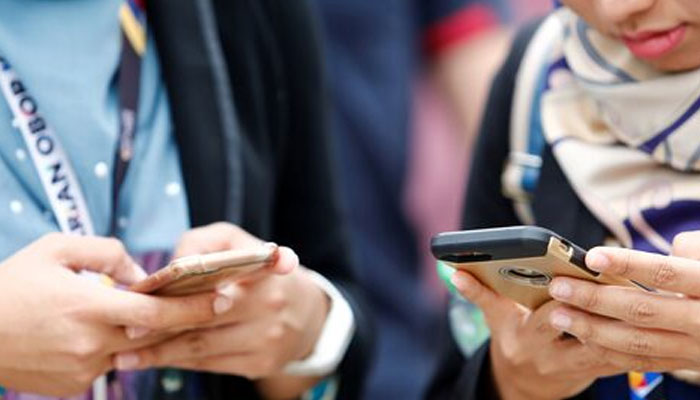Only 10pc of digital users are aware of privacy concerns: experts
LAHORE: Digital experts in Pakistan have raised concerns over lack of public awareness about digital privacy.
Cybersecurity expert Arsalan Bukhari estimates that only about 10 per cent of users are genuinely aware of digital privacy concerns. Most people remain indifferent to protecting their personal privacy, with only around 5.0 per cent employing various tactics to safeguard themselves.
According to Bukhari, many users are also unaware of why different platforms and apps request access to their photos, microphones, and other information unrelated to their primary functions. Once such permissions are granted, digital privacy becomes vulnerable.
A recent study by cybersecurity firm Kaspersky, titled ‘Excitement, Superstition and Great Insecurity – How Global Consumers Engage with the Digital World’, reveals mixed perceptions among users regarding the protection of their personal information.
Forty-seven per cent of respondents in the META region believe that covering their device webcams is a sufficient privacy measure, while 42 per cent trust incognito modes to protect their online activities. These statistics highlight the ongoing challenge of discerning what constitutes true security and privacy.
This is not entirely accurate, as it only temporarily blocks visual surveillance and does nothing to disable the webcam’s microphone or prevent image interception when users activate their cameras. On the other hand, more than half of the respondents (52 per cent) engage in online mini-games and quizzes for fun, sharing personal details with unreliable sources and posting results on social media, thus involving friends in this careless data-sharing network.
Bukhari points out that people often do not realize the extent of access they grant to these platforms and apps. Almost half of all users are concerned that voice assistants might be constantly listening and collecting personal information.
Many people mistakenly believe that simply setting passwords or patterns on their mobile devices and laptops is enough to ensure their digital privacy. However, digital privacy encompasses much more than just device protection. While passwords are a fundamental step in safeguarding a device from unauthorized access, they do not fully address the broader scope of digital privacy, the experts argue.
Per the Kaspersky report, 42 per cent of users mistakenly believe that using incognito mode makes them entirely invisible online, though it does not ensure complete privacy. Incognito mode only prevents browsers from saving website history, cookies, download history, and authorization data but does not guarantee full anonymity. Surprisingly, 32 per cent of users are willing to click on unfamiliar links in messengers, potentially jeopardizing their security.
Executive Director of the Digital Rights Foundation (DRF) Nighat Dad notes that when their organization started over a decade ago, people were largely unaware of basic device privacy practices such as using passwords. While awareness has improved over time, many users still believe that merely setting passwords is sufficient for protecting their devices. A majority of Pakistanis do not realize that digital privacy is a constitutional right.
Although people are becoming more aware of basic digital privacy, those with lower literacy levels remain unfamiliar with semi-advanced and advanced privacy measures. They often do not understand how apps, platforms, and tools collect and spy on their data. Threat actors range from sophisticated ones with extensive resources targeting devices with spyware to less sophisticated ones using readily available spyware technology for financial gain.
These cheaper spywares often involve reverse engineering and exploit webcams and microphones. Nighat believes that the state has a responsibility to educate people about digital privacy. However, this task should not fall solely on the state; civil society, media, and educational institutions also play crucial roles. If the state acts transparently and in the public interest, there should be no issues.
Conversely, if the state uses such initiatives to control or silence people, concerns about its motives arise. Social media platforms and other digital entities are not adequately providing awareness in native languages, and digital literacy remains largely absent from the broader education system and public discourse, she adds.
-
 King Charles' Andrew Decision Labelled 'long Overdue'
King Charles' Andrew Decision Labelled 'long Overdue' -
 Timothee Chalamet 'forever Indebted' To Fan Over Kind Gesture
Timothee Chalamet 'forever Indebted' To Fan Over Kind Gesture -
 Columbia University Sacks Staff Over Epstein Partner's ‘backdoor’ Admission
Columbia University Sacks Staff Over Epstein Partner's ‘backdoor’ Admission -
 Ozzy Osbourne's Family Struggles Behind Closed Doors
Ozzy Osbourne's Family Struggles Behind Closed Doors -
 Dua Lipa Claims Long-distance Relationship 'never Stops Being Hard'
Dua Lipa Claims Long-distance Relationship 'never Stops Being Hard' -
 BTS Moments Of Taylor Swift's 'Opalite' Music Video Unvieled: See Photos
BTS Moments Of Taylor Swift's 'Opalite' Music Video Unvieled: See Photos -
 Robin Windsor's Death: Kate Beckinsale Says It Was Preventable Tragedy
Robin Windsor's Death: Kate Beckinsale Says It Was Preventable Tragedy -
 Rachel Zoe Shares Update On Her Divorce From Rodger Berman
Rachel Zoe Shares Update On Her Divorce From Rodger Berman -
 Kim Kardashian Officially Takes Major Step In Romance With New Boyfriend Lewis Hamilton
Kim Kardashian Officially Takes Major Step In Romance With New Boyfriend Lewis Hamilton -
 YouTube Tests Limiting ‘All’ Notifications For Inactive Channel Subscribers
YouTube Tests Limiting ‘All’ Notifications For Inactive Channel Subscribers -
 'Isolated And Humiliated' Andrew Sparks New Fears At Palace
'Isolated And Humiliated' Andrew Sparks New Fears At Palace -
 Google Tests Refreshed Live Updates UI Ahead Of Android 17
Google Tests Refreshed Live Updates UI Ahead Of Android 17 -
 Ohio Daycare Worker 'stole $150k In Payroll Scam', Nearly Bankrupting Nursery
Ohio Daycare Worker 'stole $150k In Payroll Scam', Nearly Bankrupting Nursery -
 Michelle Yeoh Gets Honest About 'struggle' Of Asian Representation In Hollywood
Michelle Yeoh Gets Honest About 'struggle' Of Asian Representation In Hollywood -
 Slovak Fugitive Caught At Milano-Cortina Olympics To Watch Hockey
Slovak Fugitive Caught At Milano-Cortina Olympics To Watch Hockey -
 King Charles Receives Exciting News About Reunion With Archie, Lilibet
King Charles Receives Exciting News About Reunion With Archie, Lilibet




